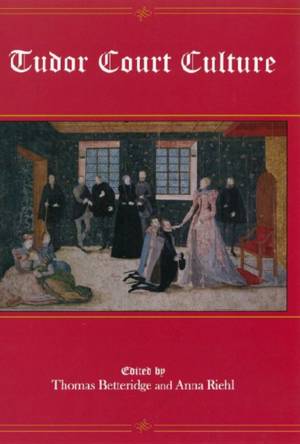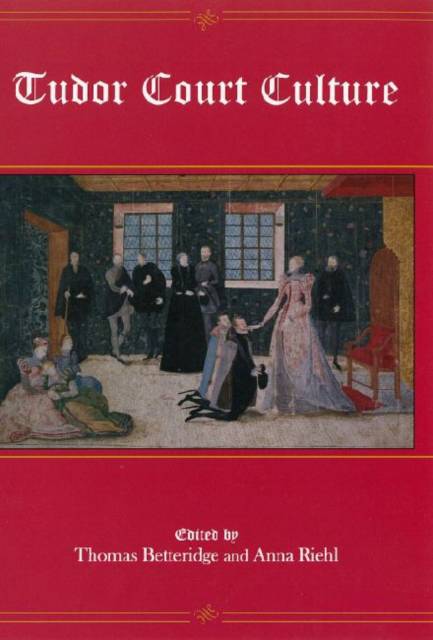
- Afhalen na 1 uur in een winkel met voorraad
- Gratis thuislevering in België vanaf € 30
- Ruim aanbod met 7 miljoen producten
- Afhalen na 1 uur in een winkel met voorraad
- Gratis thuislevering in België vanaf € 30
- Ruim aanbod met 7 miljoen producten
Zoeken
Omschrijving
Part of The Apple-Zimmerman Series in Early Modern Culture, Tudor Court Culture is an interdisciplinary volume that examines the cultural history of the court and its possible interpretations from the early 1500s to the end of the reign of Elizabeth I. The history of Tudor court culture during the sixteenth century is a movement of the court beyond its physical confines out into the country so that courtliness becomes more a state of mind, a way of behaving, a language, and a symbol. The first part of this collection investigates issues in relation to the court of Henry VIII: the ongoing negotiation of the discrepancies between the ideal and the real, desired and granted, imagined and perceived. The second part explores the changing conditions of the court and assesses the extent of the centrifugal influence of the court culture during the reign of Elizabeth I. The collection includes essays by Thomas Betteridge, Stefani Brusberg-Kiermeier, Jessica Malay, Ayako Kawanami, Aysha Pollnitz, Anna Riehl, Peter Sillitoe, and Sam Wood. Thomas Betteridge is a Reader in English Literature 1550-1750 at Oxford Brookes University. Anna Riehl is an Assistant Professor of English at Auburn University.
Specificaties
Betrokkenen
- Auteur(s):
- Uitgeverij:
Inhoud
- Aantal bladzijden:
- 211
- Taal:
- Engels
- Reeks:
Eigenschappen
- Productcode (EAN):
- 9781575911182
- Verschijningsdatum:
- 1/01/2010
- Uitvoering:
- Hardcover
- Formaat:
- Genaaid
- Afmetingen:
- 150 mm x 234 mm
- Gewicht:
- 453 g

Alleen bij Standaard Boekhandel
+ 184 punten op je klantenkaart van Standaard Boekhandel
Beoordelingen
We publiceren alleen reviews die voldoen aan de voorwaarden voor reviews. Bekijk onze voorwaarden voor reviews.











